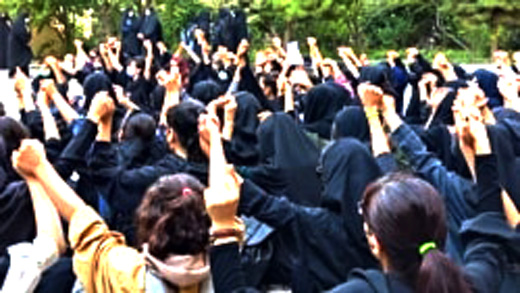Reminding School Officials and Teachers of Tips to Support Students in Social Crises
Social crises are accompanied by high levels of stress that can seriously harm the mental health of children and adolescents. In these situations, schools, as the second home of students, play an important role in crisis management. However, many school officials and teachers may not know what actions to take to reduce stress levels in these circumstances.
Paying attention to and implementing the following tips can help teachers and school officials in this area.
In high-stress situations, the emotional levels of children and adolescents are high, and it is not unusual for misbehavior and anger to increase. When faced with these behaviors, keep calm and try not to escalate tensions. Avoid using violence, creating fear, blaming, and other similar actions to manage the situation.
Adopt a caring approach and try to ensure that students are not involved in the crisis and are not exposed to dangers and harms as much as possible.
Maintain close communication with students’ parents and collaborate with them to manage the crisis.
Provide opportunities for students to express their concerns and feelings. Try to see the situation from their perspective and do not downplay their worries.
Teach them methods for managing emotions and controlling anger.
Do not engage in arguments and disputes with their beliefs and do not try to align them with your own beliefs. In crises, the first step is to reduce emotional levels, and discussions are not very effective.
Young children do not have a complete understanding of events and cannot process many occurrences in their minds. Therefore, do not expose young children to news and details of incidents.
There is always a group of children and adolescents more susceptible to harm than others. For example, students with a history of anxiety, depression, behavioral problems, etc., need more care. In these cases, stay in contact with the parents of these children to provide necessary support if needed.
In crisis situations, a lot of false information and rumors are exchanged. Teach students not to easily accept or react to any news or message until they have sufficient evidence.
To gain students’ trust, be honest with them and avoid premature judgments and confirming some news and information without sufficient evidence.
In stressful and crisis situations, the likelihood of risky behaviors, self-harm, and suicide increases. In these conditions, be vigilant about students at risk with a previous history of suicide attempts, depression, etc. If you observe warning signs such as prior announcements or threats of suicide, take the matter seriously and take necessary actions to prevent it.
You too endure a lot of stress in these situations. Take care of yourself and plan for rest opportunities. If at times you feel you cannot control your emotions, try not to take action and delegate the management of the situation to another colleague.
Consult mental health professionals at every stage.
Source: Iranian Child and Adolescent Psychiatry Association

